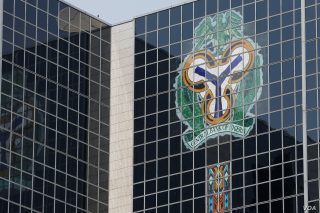Last week, the Central Bank of Nigeria released new guidelines for companies seeking to apply for any of several categories of licenses available in the payment subsector. The major change is that these payment companies are now required to match their shareholder capital and pay the sum to CBN which will hold it in escrow. Escrow simply refers to funds belonging to a business but are not directly reflected on its balance sheet.
All new license applications carry a non-refundable application fee of N100,000 and a non-refundable license fee of N1 million to be paid before issuance, in the case that the company’s application is deemed successful. While the price for individual licenses varies owing to the degree of services covered. Existing businesses in the sector are required to submit their audited reports detailing their last three financial years. This requirement is waived for new businesses making these applications. New businesses, however, must file the relevant information of their board of directors alongside their BVN numbers.
The escrow and shareholder capital requirements build on a CBN directive issued on the 9th of December 2020. The aforementioned directive enforced the structure and reclassification of the Nigerian payment system licenses into four broad categories. It also expressly classifies MMO (Mobile Money Payment Terminal Service Provider Organisations) as being the only payment companies allowed to hold depositors funds.
The new regulation aims to ensure that companies are well funded. In addition to the increased capital requirements, companies are required to match their shareholder capital requirements which are then held in escrow by the CBN and are refundable. Subject to availability, the CBN intends to plough these funds into treasury bills. The deposit for escrow must also be made payable in one lump sum to a designated CBN account.
This move ensures that companies in the sector operate on a more robust and transparent financial footing. It also ensures that firms are managed with efficiency and that they do not compromise shareholder capital to cover operational losses. This development is in line with CBN’s earlier commitment to ensure monitoring and issuance of fresh directives to further streamline the operations of companies under its regulatory ambit (or oversight).
The new shareholder capital requirements and their matching escrow contributions are as fellows
- Switching and processing License – Two billion Naira in shareholder’s capital and two billion held in escrow with the CBN PSP Share Deposit Account.
- Mobile Money Operator License – Two billion Naira in shareholder capital and two billion Naira held in escrow paid to the CBN PSP Share Capital Deposit Account.
- Payment Solutions Service (Umbrella License) – N250 million in shareholders capital, with N250 Million if bidding for all three licenses(PSSP, PTSP, Super Agent). If bidding for the stand-alone PSS license, the required escrow contribution is N100 Million.
- Payment Terminal Service Provider – N100 million in shareholders funds and N100 million in escrow with the CBN PSP Share Capital Deposit Account.
- Super Agent License – N50 million in shareholder capital and N50 million in escrow paid to the CBN PSP Share Capital Deposit Account.
The CBN, with its commitment to constant monitoring and evaluation of the payments subsector, is ensuring efficiency and looking to improve the corporate governance of industry players. This directive allows companies to recapitalise in the event they decide to expand their operations to other sectors not covered by their current licenses.
Written by Ogodilieze Osaji-Ugo








